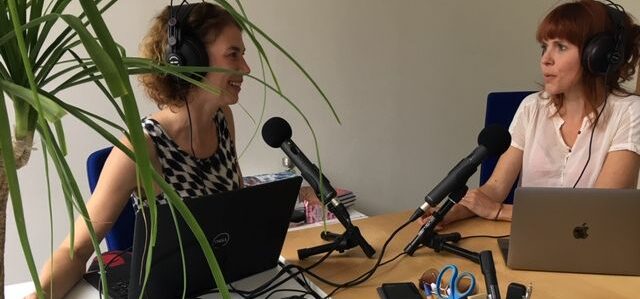September 24, 2021
How do we talk about justice for Syrians?
When the Syrian uprising started in 2011, justice and accountability were key demands of the protest movement. Civil society activists and international stakeholders embraced the transitional justice paradigm to accompany the hoped-for transition. However, the Assad regime’s policies of annihilation crushed the uprising and led to a civil war, with an increasing number of perpetrators of crimes. While states failed to provide a meaningful response, Syrian and international stakeholders continue to pursue justice in a situation where impunity seems the norm.
In this episode, Brigitte Herremans makes the case for opening the ‘justice imagination’, stretching the boundaries of what is imaginable in terms of justice. She sheds a light on how justice actors try to overcome the justice impasse, notably with regard to the crimes of forcible disappearances and kidnappings. Brigitte also shares insights from an article she co-authored with Tine Destrooper, exploring the concepts of invisibilization and erasure of experiences of Syrian victims. To demonstrate how these crimes are foregrounded concretely, Brigitte spoke to Maryam al-Hallak and Yasmin Fedda.
Maryam is a founding member of the Caesar Families Association, gathering families who identified missing relatives through a collection of photographs known as the Caesar Files. Her son Ayham was forcibly disappeared and killed by the regime, and she never retrieved his body. Yasmin Fedda is a Palestinian-Syrian filmmaker who lectures at Queen Mary University of London. She directed the documentary Ayouni, chronicling the story of media activist Bassel Safadi and Italian priest Paolo, who are respectively disappeared and executed by the regime and kidnapped by ISIS. Maryam and Yasmin share some of the complexities of this quest and highlight the importance of making sure these crimes are not forgotten.
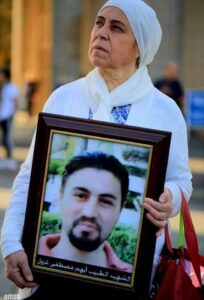

The full interview with Maryam al-Hallak is available below:
July 8, 2021
Spotlight on Germany and Namibia
The German recognition of the genocide in Namibia
In June, Germany officially recognized the genocide against the Herero and Nama people of 1904-1908, acknowledging the responsibility of the German colonial authorities in Namibia and offering a reparation of 1,1 billion euros. Nama and Herero people were deliberately targeted under German colonization, resulting in tens of thousands of deaths (estimates go as far as 80% of the Herero and Nama minorities), confiscation of land and livestock, and inhumane treatment.
In this episode, we talk with Professor Reinhart Kößler and Mrs. Ida Hoffmann to understand what triggered the German recognition of the genocide, how it has been received by various actors concerned, and whether and how these questions are relevant for the expanding field of transitional justice. While the UN officially recognized this genocide already back in 1985, Germany only lately started using this language. As Professor Kößler argues, ‘the German official language really skirted around that word genocide for a very long time when it came to Namibia and the German past as a colonial power in general. They even went to great length to avoid talking about genocide.’
Justice is still a long way ahead, insists Mrs. Hoffmann. ‘This is not justice because all of the sudden, the two governments are talking now today. The majority of the Nama people are not there, the traditional leaders. The Herero traditional leaders are not there. With whom they are talking? There is no way where our government can just together with the German government come in and decide on how much will be paid. Acknowledgment is what we want, the round table with that acknowledgment.’
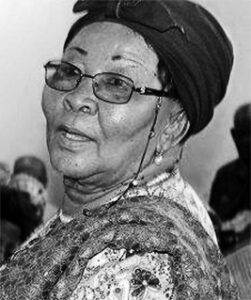
Ida Hoffman is a longtime defender of the recognition of the genocide in Namibia, an advocate for reparations and committeed to the rights of the descendants of the victims of the Namibian genocide. She was Chairperson of the Nama Genocide Technical Committee (NTLA).

Reinhart Kößler is Professor in Sociology and director of the Arnold Bergstraesser Institute in Freiburg. He is a German sociologist with long research experience concerning Namibia and particularly Namibian-German memory politics.
June 8, 2021
Spotlight on Belgium
Transitional justice’s role in addressing Belgium’s colonial past
Belgium is the first country to establish a parliamentary commission dealing with its overseas colonial past in the Democratic Republic of Congo, Burundi, and Rwanda. The commission was established in July 2020. This happened after the public outcry about George Floyd’s murder, the surge of the Black Lives Matter movement, huge anti-racism protests, and a growing debate about Belgium’s colonial heritage, illustrated by the contestation over statues of King Leopold II, who was responsible for widespread atrocities committed under his rule.
The mission of this “special commission” is to shed a light on all aspects of Belgium’s colonial past. To this end, it appointed ten experts and four civil society representatives to write a report that was supposed to be released months ago, but which has not been made public to date. Civil society organisations have welcomed the commission as an opportunity to confront Belgium’s colonial past and to address contemporary injustices. Yet, many of them are also critical about the process, and particularly about the limited consultation regarding how this process should be designed, the selection of the experts, and the overall lack of transparency.
Our interviewee in this episode, Dr. Liliane Umubyeyi, research coordinator at Avocats Sans Frontières, elaborates on the shortcomings of the commission:
“Theoretically, it’s ambitious and it’s something that could be replicated in other countries. But at this point it’s empty. So we have to see something concrete.”
While she is cautious about too technical or theoretical an approach, she confirms that the paradigm of transitional justice is potentially an apt one in the Belgian experience:
“A commission like this offers an opportunity that, for example, criminal trials wouldn’t offer in terms of understanding the different lines of responsibility in historical injustices of going beyond individual responsibility in terms of bringing or finding proofs.”
Photo: © CADTM
May 7, 2021
Spotlight on the Democratic Republic of the Congo
Prospects for victim participation in the new Truth and Reconciliation Commission
In this episode, we put a spotlight on the Democratic Republic of Congo where a truth and reconciliation commission (TRC) was established in 2003, in an attempt to bring an end to hostilities and pave the way to democratization. However, the TRC was short-lived, leaving victims of mass atrocities with fewer avenues for the right to truth. Recently, the government of President Felix Tshisekedi has shown willingness to support the installment of a new TRC and to set up a reparations fund for victims of mass atrocities. Marit de Haan and Christian Cirhigiri speak with Gentil Kasongo, researcher at Impunity Watch in the Great Lakes Region of Africa, who shares what this new momentum for truth-seeking means for the overall field of TJ in the DRC and for the participation of victims of mass atrocities.
Gentil Kasongo is a researcher at Impunity Watch and TJ practitioner from the DRC. He holds a Master’s in Human Rights Law from the University of Cape Town and a law degree from the University of Goma. With seven years of researching human rights in the region, Gentil has worked with civil society actors and victim groups in the North Kivu and South Kivu provinces, providing training of trainers on TJ and victim participation.
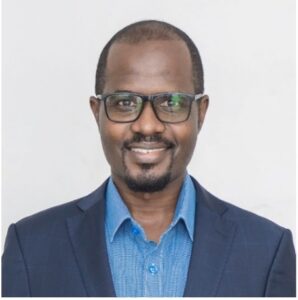
Christian Cirhigiri is a PhD researcher at the Human Rights Center of Ghent University. His research project focuses on victim participation in the TJ pillar of Guarantees of Non-Recurrence in the DRC.
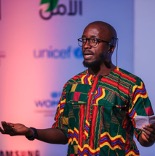
Photo on the left: © Debout Congolaises
March 31, 2021
Spotlight on Sri Lanka
Accountability and the Human Rights Council
Sri Lanka’s present is haunted by memories of the island’s decades-long civil war, which ended just over a decade ago. The war was mainly a clash between the Sinhalese-dominated Sri Lankan government and the Liberation Tigers of Tamil Eelam (LTTE) insurgent group, the latter of which had hoped to establish a separate state for the Tamil minority. Although the Civil War ended in 2009, the current situation in Sri Lanka has only partially improved. A large portion of the Tamil population remains displaced. While there are fewer political and civil rights issues, instances of torture and enforced disappearances persist even in recent years. The Sri Lankan military still occupies predominantly Tamil areas designated as “high-security zones,” though to a lesser extent than during the war. The entrenched impunity for the deaths of tens of thousands of Tamil civilians in the final stages of the war in late 2008 and 2009 in what the United Nations called a “bloodbath”, remains unaccounted for.
In January this year, the Office of the High Commissioner for Human Rights (OHCHR) released a damning report on the human rights situation in Sri Lanka. The report tracks Sri Lanka’s current, deteriorating human rights situation, identifying developments that “risk the recurrence of… the grave violations of the past.” In March, the HRC adopted a new resolution on Sri Lanka, ramping up international monitoring and scrutiny of the human rights situation in Sri Lanka, and the new resolution also mandates the UN human rights office to collect, consolidate and preserve evidence for future prosecutions and make recommendations to the international community on steps they can make to deliver on justice and accountability.
In this episode, Tine Destrooper and Sangeetha Yogendran speak with Archana Ravichandradeva, a Canadian lawyer and Senior Advocacy Officer with PEARL, People for Equality and Relief in Lanka, a women-led NGO concerned about the situation in Sri Lanka. In her role at PEARL, she works to build connections with government officials to advocate for justice and accountability on the island. We discuss accountability and transitional justice efforts in Sri Lanka, and in light of developments before the Human Rights Council.
Sangeetha Yogendran was a Research Fellow with Justice Visions, examining victim participation in transitional justice processes in Cambodia.

Archana Ravichandradeva is a lawyer practicing labour and employment law in Toronto, and is Senior Advocacy Officer for People for Equality and Relief in Lanka (PEARL).


